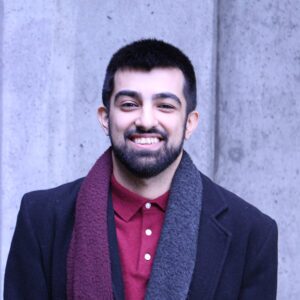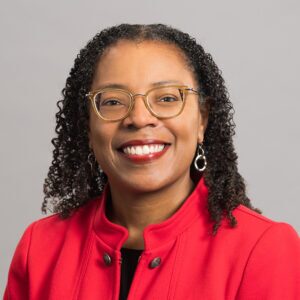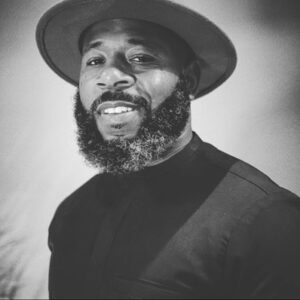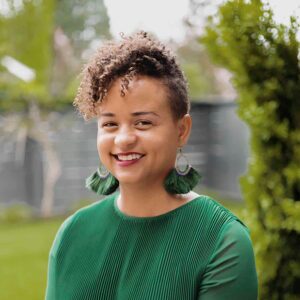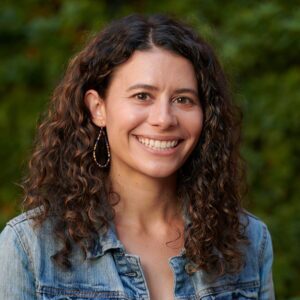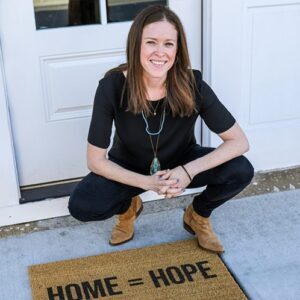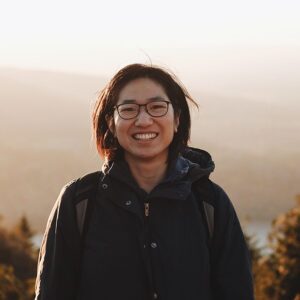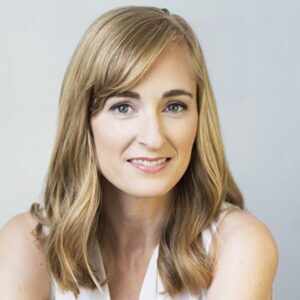ULI has announced the participants in the sixth cohort of the ULI/Randall Lewis Health Mentorship Program, which is supported by ULI Foundation governor Randall Lewisand managed by ULI Building Healthy Places. As part of ULI’s commitment to empowering the next generation of diverse real estate leaders, programs like this allow graduate students to gain inspiration for their postgraduate endeavors and see how the concepts they have learned in their academic pursuits translate into practice.
Since 2017, the Health Mentorship Program has supported professional network building, learning, and exchange between students and ULI member experts working at the intersection of health and the built environment. In addition to being paired with a ULI full-member mentor according to professional interests and gaining exposure to the Institute, participants are given the opportunity to attend the ULI Spring and ULI Fall meetings. At these gatherings, students attend product council meetings and, alongside their mentors and cohort members, attend programming focused on health, social equity, and sustainability.
Cohort 6 members are listed below, followed by their ULI mentors.
Yasir AlfaragMaster’s student, urban planningUniversity of Washington
Alfarag is a student in the University of Washington’s master of urban planning program, where he is enrolled in the Runstad Department of Real Estate’s certificate program. He is particularly interested in real estate development projects that improve safety as well as access to housing, employment, and broader economic opportunity for communities. He sees himself playing a role in improving health through the built environment by working toward equitable community engagement and improving infrastructure and policies that make people’s lives easier.
Alfarag is a first-generation American who grew up in Baghdad, Iraq, and Damascus, Syria. There, he saw firsthand the failure of many basic systems and how the built environment can determine economic outcomes. Now living in Seattle, Alfarag is passionate about the city’s growth and progress. His work and volunteer experience has focused on projects to make Seattle and the Puget Sound region more livable for people of all backgrounds, especially those living in low-income communities.
Alfarag is putting his learning into practice in his work as a project associate at BERK Consulting, a Seattle planning and public policy firm. An avid cyclist, he is also a member of the Seattle’s Bicycle Advisory Board, where he advises the mayor and City Council on bicycle-related improvement projects. Outside of work, he loves cooking, travel, and exploring new neighborhoods.
Mentor: Tanya Stern, acting planning director, Montgomery County (Maryland) Planning Department; member, ULI Transit-Oriented Development Council
Stern is acting planning director for Montgomery County, Maryland, the state’s largest county, with over 1 million diverse residents. She leads the Montgomery County Planning Department’s land use planning and development review for the county’s urbanized, suburban, and rural communities; the development of countywide housing, multimodal transportation, and growth management policies; innovative studies on real estate and the economy; historic preservation; promotion of design excellence in architecture and the public realm; Montgomery Planning’s department-wide Equity Agenda for Planning; and implementation of Thrive Montgomery 2050, the county’s new general plan adopted in 2022.
Before this role, Stern was deputy planning director, overseeing countywide housing policy, zoning, growth management, multimodal transportation planning, and historic preservation; real estate, economic, and demographic analysis; information technology/geographic information system; and agency management services, including budgeting, human resources, and communications. She also was a key adviser during the development of Thrive Montgomery 2050. Before that, Stern served for 14 years in the Washington, D.C., government, including eight years at the D.C. Office of Planning as deputy director overseeing neighborhood planning and urban design, and as chief of staff; in the Executive Office of the Mayor; and in other District government agencies. She also has 11 years of nonprofit experience. Stern holds a master’s degree in city planning from the University of Pennsylvania and is certified through the American Institute of Certified Planners and as a Certified Public Manager.
Stern is a member of the American Planning Association, Lambda Alpha International, and ULI. She is on ULI Washington’s Governance Committee and is a member of ULI’s Transit-Oriented Development Council. She was the cofounder and co-chair of ULI Washington’s Placemaking Initiative Council for three years; a past co-chair of ULI Washington’s Initiative Council Steering Committee; and a past member of ULI Washington’s Management Committee, the Innovation and Technology local council, Prince George’s County Initiative Council, and Membership Committee.
Casey “Oche” BridgefordMaster’s student, real estateGeorgetown University
Bridgeford is a graduate student in Georgetown University’s real estate program, set to graduate in May 2024. He is also a member of the Pennsylvania Department of Health’s Racial Health Disparities Committee. Bridgeford was instrumental in drafting the Harrisburg Housing Authority’s first official COVID-19 response policy during the pandemic to ensure the safety and well-being of residents. His goal is to create tailored communities worldwide that provide Black people with a safe environment to thrive in body, mind, and soul.
He is an entrepreneur, entertainer, and real estate professional. He established the Weekender Festival, a music festival that develops resources for low-income communities. He is a member of the band DaFilled, one of whose songs was featured in Miramax’s Reel Paradise film. His art and music are available at ocheigboyi.com.
Bridgeford is a TEDx speaker, communications professional, and entrepreneur who contributed to the formation of a local branch of Public Allies, an organization founded by President Obama. He played a key role in shaping the vision for the My Brother’s Keeper Initiative, which addresses policies affecting young African American men.
His experience extends beyond the United States. In partnership with Microsoft and the U.S. Agency for International Development, he mentored African companies in Johannesburg, South Africa; Accra, Ghana; and Lagos, Nigeria. He is also a partner with Funema, an investment firm that supports last-mile entrepreneurs in emerging economies. He has been featured in various media outlets, including Fox, CBS, CNBC Africa, Business Day TV, Harvard University, Blavity, and AfricaRising.
Mentor: Anyeley Hallová, founder, Adre; member, ULI Urban Development/Mixed Use Council, Blue Flight
Hallová started Adre, an equity-centered real estate development company in Portland, Oregon, in 2020 to create a prosperous life for people and organizations that traditionally lack access to real estate ownership and investment.
Before Adre, she was a partner with project^, developing student housing, market-rate housing, residences, and offices for mission-driven organizations; was development manager for Gerding Edlen Development; and an associate urban designer at EDAW.
Her civic work includes her role as chair of Oregon’s Land Conservation and Development Commission and chair of the U.S Green Building Council (USGBC). She has served on the board of 1000 Friends of Oregon and the Portland Housing Center, and as an expert on ULI Advisory Services panels.
Hallová was named to ULI’s “40 Under 40” list as one of the top young land use professionals from around the globe, and she has been named a Grist 50 Fixer. She has degrees from Cornell University, the Massachusetts Institute of Technology, and Harvard University.
Sarah CarrilloMaster’s student, city and regional planningCornell University
Carrillo is pursuing a master’s degree in regional planning at Cornell University. She has experience in internal and external communication and is passionate about research, strategic planning, and advocacy for inclusive accessibility in public spaces. She plans to address the needs of large-scale equity by connecting with those in marginalized communities and listening to their voices.
Carrillo is eager to examine themes and methodological approaches using systems thinking to identify the injustices disabled people face in the built environment. By identifying specific challenges and policy restrictions, the hope is to fill the disconnect between physical infrastructure and young adults with disabilities. She hopes to produce an actionable change that provides equitable, efficient service for all.
Carrillo’s goals are intertwined with her passion as she continues to bridge connections and develop a clear path to her career. She enjoys walking to the park with her dog and a coffee in hand.
Mentor: Marja Williams, principal, Urban Oranje; member, ULI Sustainable Development Council
Williams is the principal of Urban Oranje, a development management company focused on healthy and sustainable real estate projects. She has more than 25 years of experience in urban planning and real estate development.
Williams leads integrated teams to design and build leading-edge sustainable projects. In 2012, she cofounded Asani Development Company after completing the Bainbridge Island Art Museum and the Island Gateway commercial project. With Asani, she created and managed the team to design, build, and market the 130-unit Grow Community, one of the first residential net zero energy neighborhoods in the United States. She also led the team to build The Walk, a zero energy multifamily project, and then moved on to a leadership role with the global nonprofit International Living Future Institute, where she was chief program officer. Williams has recently rejoined the world of development management to work on projects combining healthy community design and affordable housing.
Williams is the incoming chair of the ULI Sustainable Development Council. She holds an executive MBA from both Cornell and Queens universities, as well as a BS in environmental science with a minor in political science and international affairs from Oregon State University. She is a board member for Remote Energy and for Architects Without Borders Seattle.
Danielle PaulazzoMaster’s student, public health, urban and regional planningUniversity of California, Los Angeles
Paulazzo is pursuing concurrent master’s degrees in public health (community health sciences) and urban and regional planning (environmental analysis and policy) at UCLA. She is interested in the intersection of sustainability and public health, with particular focus on populations most vulnerable to environmental hazards.
Paulazzo is a research associate with cityLAB’s Place to Be project, which aims to evaluate metrics of well-being for unhoused Angelenos and offer guidance on service provision in public spaces. She also works with the University of Southern California as a team lead and surveyor to conduct the 2023 Greater Los Angeles Homeless Count Demographic Survey, and with UCLA’s Mobile Clinic Project as a public health coordinator.
Previously, she worked at the Nature Conservancy World Office to facilitate gifts of real estate to the organization, and at the Center for Strategic and International Studies as a program coordinator in the Technology Policy Program. Paulazzo received a BA in international studies with honors from Willamette University.
Mentor: Beth Silverman, cofounder and executive director, Lotus Campaign; member, ULI Urban Revitalization Council, Blue Flight
Silverman is a senior practitioner and thought leader at the intersections of social impact, urban planning, real estate development, and public policy. Her career includes leadership roles in the private, public, and nonprofit sectors focused on building livable, equitable, and resilient communities.
Since 2018, Silverman has been the founding executive director of the Lotus Campaign, an innovative nonprofit real estate development startup that tackles homelessness by engaging in private sector partnerships and leveraging capital as a tool for good. Under her leadership, the Lotus Campaign developed 32 partnerships with nonprofits, landlords, and funders to facilitate housing for over 380 individuals at an annual cost of less than $1,000 per person per year; the nonprofit received an honorable mention in Fast Company’s 2020 World Changing Ideas competition. Silverman also participated in the 2020 class of SEED20 nonprofit entrepreneurs.
Before leading the Lotus Campaign, Silverman tackled complex land use and real estate development challenges in communities across the United States and internationally. From 2014 to 2018, she was vice president of Advisory Services at ULI, designing technical assistance programs that addressed a range of challenges from equitable urban redevelopment to planning for resilience. She co-created the Equitable Economic Development Fellowship program with the National League of Cities and Policy Link to help equity, transparency, sustainability, and community engagement become driving forces in local economic development efforts and to strengthen public-sector leadership.
From 2005 to 2013, Silverman oversaw and managed large-scale real estate, policy, and economic development initiatives throughout the New York City region. While at the NYC Economic Development Corporation, she managed a $110 million portfolio of 10 projects that created over 300 units of affordable housing, five new cultural assets, and 16,000 square feet of high-quality public space. She also led the launch of a city-sponsored incubator supporting emerging entrepreneurs in culinary, food manufacturing, and related industries in Brooklyn.
Silverman holds an undergraduate degree from the University of Maryland and a graduate degree in city planning from the University of Pennsylvania. She is an active ULI member and serves on the boards of the Petersburg Community Development Corporation and Asheville Downtown Association. When not working, she can usually be found outside—running, biking, surfing, hiking, and generally encouraging friends and family to enjoy the outdoors with as much unabashed enthusiasm as she does. Her motto: “Find out who you are and do it on purpose,” which she proudly lifted from Dolly Parton.
Jessica TangMaster’s student, urban planning, public policyHarvard University
Tang is a master of urban planning and master of public policy student at the Harvard Graduate School of Design and Harvard Kennedy School, graduating in 2023. Her studies have been in housing, community and economic development, transportation, infrastructure, and policy analysis.
She recently was a sustainable economics intern for AECOM and a Rappaport Public Policy Fellow for MassDevelopment. Before graduate school, she was a capital program coordinator for the New York City Department of Parks & Recreation. After majoring in sociology at Hamilton College, she worked in West Philadelphia through AmeriCorps as a housing and resident engagement coordinator for the Philadelphia Mayor’s Office of Community Empowerment and Opportunity.
Tang is passionate about ways to revitalize neighborhoods equitably and sustainably, whether that takes the form of stronger community engagement processes, cross-sector partnerships, changes to local- and systems-level institutions, or a combination of these. She is particularly interested in open-space planning and programming to connect neighborhoods spatially and socially. She is from New York City.
Mentor: Kacey Cordes, vice president, U.S. Bancorp Community Development Corporation; member, ULI Public/Private Partnership Council, Blue Flight
Cordes is a vice president in the Affordable Housing team at U.S. Bancorp Community Development Corporation (USBCDC), based in St. Louis. As one of the leaders of this nationwide team, she has two decades of experience in affordable housing finance and market-rate multifamily development.
After starting at the bank’s Denver office and closing more than $300 million in equity investments, she shifted into management and first-line review of dozens of affordable housing deals per year. Most recently, she led the creation of an onboarding and training program to substantially expand the team’s unique capabilities to offer seamless debt and equity to the most complex tax credit–financed public/private partnerships in the country. With an annual production volume of $2 billion, USBCDC’s Affordable Housing platform is an industry leader in social impact finance.
Cordes is chair of the ULI Public/Private Partnership Council and immediate past chair of ULI St. Louis. She is a member of the Leadership St. Louis class of 2016–2017. She served on ULI’s Diversity, Equity, and Inclusion (DEI) Council in 2020 and strongly believes in racial equity as a core value in business and society at large. In 2015, she was one of the first people active in USBCDC’s DEI efforts as a participant in anti-bias/anti-racism training offered by Crossroads. She and other key leaders in ULI St. Louis have sought to integrate thought leadership on equitable development at the local level since that time.
Cordes holds a MS in real estate development from Columbia University and a BA in political science and international business from Washington University in St. Louis.
To learn more about the program, visit www.uli.org/healthmentors.
EMILY ZHANG is a senior associate and BETH NILSSON is a director with ULI Building Healthy Places.

